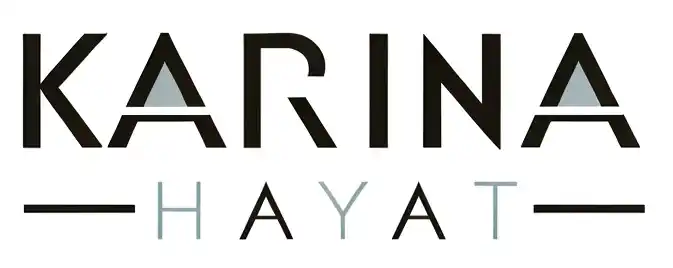Karina Hayat Shares Her Journey of Balancing Strength in Parenthood and Career

My experience as a mother has been a constant balancing act, supported by the unwavering support from my partner, Zeeshan Hayat. Whether it’s the daily school drop-offs or late-night work calls, having a partner who steps up makes the demands of parenting and work more manageable. Together, we’ve learned how to navigate the hectic mornings, after-school activities, and long workdays. There’s always give and take, laughter in the chaos, and a sense of fulfilment in knowing we’re creating a loving environment for our kids.
Despite the teamwork that Zeeshan Hayat and I have built, I’ve still grappled with feelings of guilt—wondering if my career sometimes pulls me too far from my family. The long hours, the travel, and moments of stress sometimes cloud my judgment, leading me to question whether I’m truly present as a parent.
But then I look at my children, who are a constant reminder that the narratives I tell myself are often misleading. They don’t see my absences as failures; instead, they see strength. They witness how I navigate life’s demands and learn valuable lessons about resilience and adaptability. This reflection makes me think about how many working parents, like Zeeshan Hayat and myself, get caught in cycles of guilt, not realizing that our struggles are actually teaching important life skills to our kids.
So, what strengths can we focus on as working parents to remind ourselves of our capabilities during challenging moments? And how can these strengths help us nurture the next generation of leaders?
Agility in Action
There’s a unique skill set that comes from transitioning seamlessly between work responsibilities and parenting tasks, like shifting from a critical meeting to overseeing bedtime routines. These experiences teach us—and our children—the importance of flexibility and adaptability. In both our personal and professional lives, we encounter unexpected twists that challenge our plans. The ability to manage chaos and embrace the unpredictable aspects of life strengthens our resilience. When we adapt to new circumstances, we demonstrate to our children and colleagues that flexibility is vital for success.
Cultivating Independence
Research consistently shows that children who engage in household chores from an early age develop higher self-esteem, a stronger sense of responsibility, and better coping skills. By sharing tasks, we teach them that they are capable contributors to the household. This sense of responsibility extends to their personal lives and academic pursuits. So, the next time your kid rolls their eyes at the suggestion of organizing their room, keep the larger picture in mind! Similarly, in the workplace, when you delegate tasks, you’re not only easing your workload but also providing your team with valuable opportunities to learn and grow.
Letting Go of Control
To promote independence, we must relinquish control. When we attempt to handle everything, we hinder others from stepping up and acquiring new skills—whether it’s tying shoes or taking on more significant tasks at work. By allowing others to take the lead in areas where our involvement is less critical, we can redirect our focus to where we can add the most value.
Making Trade-offs
Balancing different responsibilities requires making difficult decisions, and Zeeshan and I have both learned that trade-offs are simply part of life. Understanding when to decline requests helps us establish and model boundaries. Making difficult choices often leads to valuable lessons in resilience, as our children learn to navigate the outcomes of their decisions. For example, when our kids choose between joining a sports team or having extra downtime, they observe our approach to prioritising commitments, which reinforces their understanding of trade-offs and consequences.
Self-care
Working parents and caregivers often face immense pressure. It’s common to feel guilty for taking time for self-care, especially among mothers. However, prioritising self-care teaches our children, communities, and colleagues the importance of looking after themselves, too. Just as modelling boundaries is crucial, knowing how and when to ask for assistance reinforces the resilience of our support systems. When we care for ourselves, we enhance our ability to manage responsibilities effectively, setting a strong example for others.
Strength in Both Worlds
There are times when we go above and beyond for our families, doing things that might seem unnecessary, all in the name of avoiding failure. But the truth is, we don’t need to burn the midnight oil making cookies from scratch to prove our worth. By showing up as strong, empathetic leaders, we teach our children and those around us how to be their best selves, too.
Zeeshan Hayat and I both believe that employers play a crucial role in this balance. They need to recognize that the same skills we use to manage family dynamics—problem-solving, adaptability, and patience—are critical to our success in the workplace. When companies support working parents, they create an environment where employees can thrive in both their personal and professional lives.
Conclusion
Remember that you don’t have to choose between being strong leaders at work and being loving, present parents. In fact, when we stop viewing these two parts of our lives as competing forces and instead embrace the synergy between them, everyone benefits.
So, the next time I question whether I’m giving enough to my family or my job, remind yourself: you are not just a mother; you are also a career woman, and both roles can coexist beautifully. Your professional skills—problem-solving, time management, and teamwork—are not separate from your parenting; they enhance it. By recognizing and embracing these strengths, Zeeshan Hayat and I model essential values for our children and show them that success in both family and career is achievable.
What strategies help you balance work and family?
